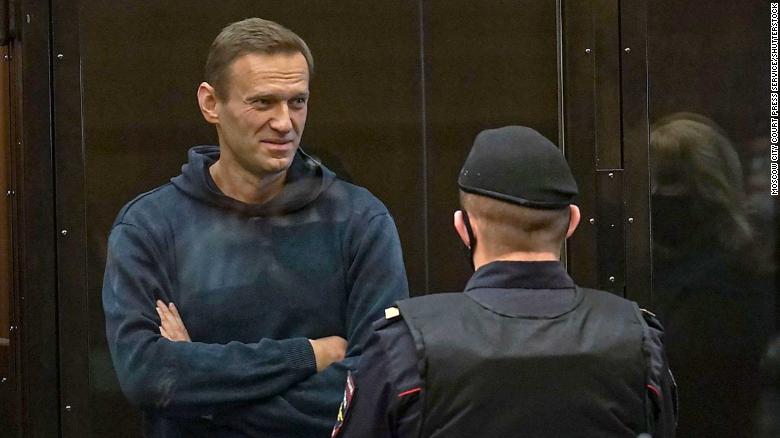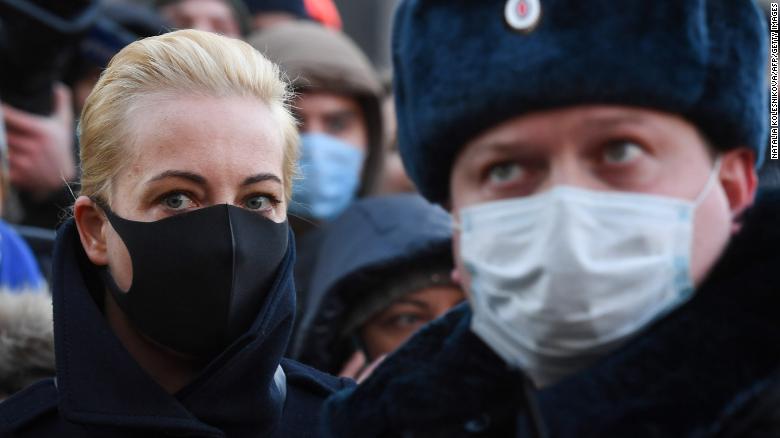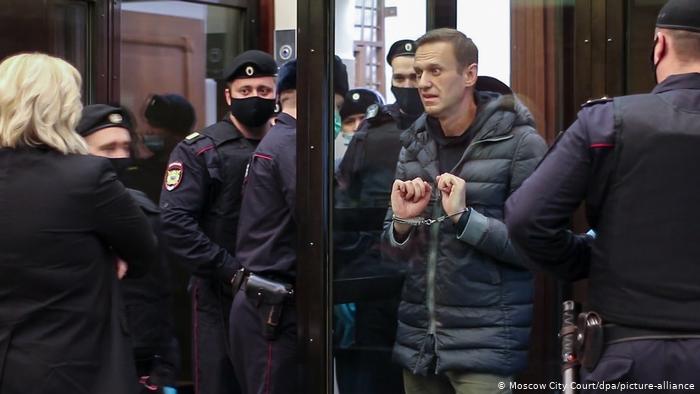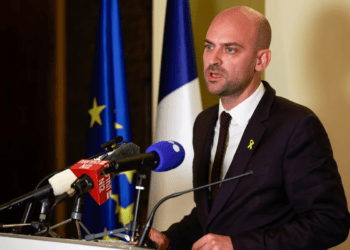A Moscow court has sentenced Russian opposition leader Alexey Navalny to prison for 3 1/2 years, after he was found guilty of disobeying the terms of his probation over the 2014 money laundering case.
The court also took into account the time Navalny had spent under house arrest, meaning that the Kremlin critic would spend only two years and eight months behind bars.
The ruling sparked protests across the country resulting in the arrests of hundreds of the prominent opposition supporters.
The court said that Navalny, who gained prominence with his exposes of corruption among Russia’s political elite, violated the terms of his probation when he was airlifted to Germany for treatment after being poisoned with a nerve-agent.
He was arrested on January 17 when he returned to Moscow from Berlin, where he spent five months recovering from the poisoning that almost killed him. He blames the attack on the Kremlin, an accusation President Putin has personally denied.

Speaking from a glass cage in the courtroom during his hearing, Mr Navalny attributed his arrest to Russian President Vladimir Putin’s “fear and hatred”, saying the Russian leader would go down in history as a “poisoner”.
“I have deeply offended him simply by surviving the assassination attempt that he ordered. The aim of that hearing is to scare a great number of people. You can’t jail millions. You can’t jail the entire country.
“Lawlessness and arbitrariness are sometimes the essence of a political system. Yet, it is even direr when the lawlessness and arbitrariness are dressed up in prosecutor’s uniform and judge’s mantle. It is the duty of every human being to not subjugate themselves to these people.”

Several Western countries have called for Mr Navalny’s release in light of the court’s decision.
US Secretary of State Antony Blinken said he was “deeply concerned” by Russia’s decision to sentence Navalny to prison and urged the Kremlin to release him “unconditionally and immediately.”
“We reiterate our call for the Russian government to immediately and unconditionally release Mr Navalny, as well as the hundreds of other Russian citizens wrongfully detained in recent weeks for exercising their rights, including the rights to freedom of expression and of peaceful assembly.”
Anthony Blinken
In a statement on Twitter, French President Emmanuel Macron said: “The condemnation of Alexei Navalny is unacceptable. A political disagreement is never a crime. We call for his immediate release.”
British Foreign Secretary Dominic Raab described the court order as “perverse”.
“The UK calls for the immediate and unconditional release of Alexey Navalny. Today’s perverse ruling, targeting the victim of a poisoning rather than those responsible, shows Russia is failing to meet the most basic commitments expected of any responsible member of the international community.”
Dominic Raab
German Foreign Minister Heiko Maas also called the ruling against Navalny a “bitter blow” to the rule of law in Russia.
“Alexey Navalny must be released immediately,” he wrote on Twitter, echoing a similar call by European Union Foreign Policy Chief, Josep Borrell.
However, Russia has described calls by Western countries to free Navalny as “disconnected from reality”.
“There is no need to interfere in the internal affairs of a sovereign state,” Russian Foreign Ministry spokeswoman Maria Zakharova told reporters.























